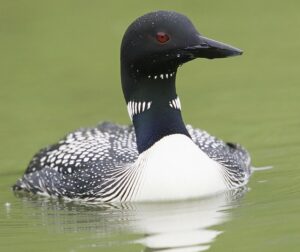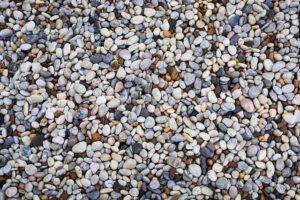Lead Kills!
 Lead is a health hazard to both humans and animals. In humans, even very low amounts of lead poisoning may result in possible IQ reduction, learning disabilities, Attention Deficit Disorder, reduced growth, kidney damage, and hearing impairment.
Lead is a health hazard to both humans and animals. In humans, even very low amounts of lead poisoning may result in possible IQ reduction, learning disabilities, Attention Deficit Disorder, reduced growth, kidney damage, and hearing impairment.
Higher levels of lead poisoning can cause mental retardation, coma, increased blood pressure, fertility problems, nerve disorders, muscle and joint pain, irritably, concentration problems-and even death.
Animals with lead poisoning will exhibit physical and behavioral changes, such as loss of balance or tremors. This makes the animal more vulnerable to predators. Birds have trouble taking care of their young, feeding or nesting. Lead poisoning often kills the birds 2-3 weeks after ingesting the lead.
 How do birds and fish get poisoned? Waterfowl such as ducks, swans and loons scoop food and pebbles off the bottom of ponds. They ingest lead fishing weights thinking the lead sinkers are stones that will aid in their digestion. The lead gets into their stomachs and dissolves, poisoning the bird.
How do birds and fish get poisoned? Waterfowl such as ducks, swans and loons scoop food and pebbles off the bottom of ponds. They ingest lead fishing weights thinking the lead sinkers are stones that will aid in their digestion. The lead gets into their stomachs and dissolves, poisoning the bird.
Fish become poisoned when they swallow lead fishing weights on fishing lines. Birds of prey such as eagles and falcons eat the poisoned fish and waterfowl, the lead ends up in their stomachs where it can slowly poison the birds.
Is lead really that big of an issue?
Research studies in New Hampshire, Minnesota, Wisconsin and Michigan estimate that up to:
- 57% of loon deaths
- 31% of Trumpeter Swan deaths
- 25% of Bald Eagle deaths
are due to lead poisoning.
 Studies done by Tufts University, over the last 30 years, show that up to 52% of adult Loon deaths are caused by lead poisoning. 25% of Bald Eagles that die died due to lead poisoning. 31% of endangered Trumpeter Swans deaths were caused by Lead poisoning At least 25 species of birds are affected by lead poisoning New Hampshire, Wisconsin, New York, Minnesota, Maine, and Vermont have already banned or limited the use of lead sinkers in fishing. Massachusetts has only banned the use of lead in the Quabbin and Wachusett reservoirs. Massachusetts currently has a bill in the works (Senate Bill 466) that would ban the use of lead in all fresh water bodies.
Studies done by Tufts University, over the last 30 years, show that up to 52% of adult Loon deaths are caused by lead poisoning. 25% of Bald Eagles that die died due to lead poisoning. 31% of endangered Trumpeter Swans deaths were caused by Lead poisoning At least 25 species of birds are affected by lead poisoning New Hampshire, Wisconsin, New York, Minnesota, Maine, and Vermont have already banned or limited the use of lead sinkers in fishing. Massachusetts has only banned the use of lead in the Quabbin and Wachusett reservoirs. Massachusetts currently has a bill in the works (Senate Bill 466) that would ban the use of lead in all fresh water bodies.
Yes…lead really is a big issue!

But it’s just one small weight, how bad could it be?
Fishing tackle manufacturers produce nearly 480 million sinkers every year.—and 98% of those are made of lead.
What does this mean? t’s estimated that 1 fishing weight is lost every 6 hours per person fishing (North American Journal of Fisheries Management 26:206-212, 2006) 3000 tons of lead fishing weights are produced every year-primarily to replace the ones lost while fishing. (Audubon Society-water bird conservation study)